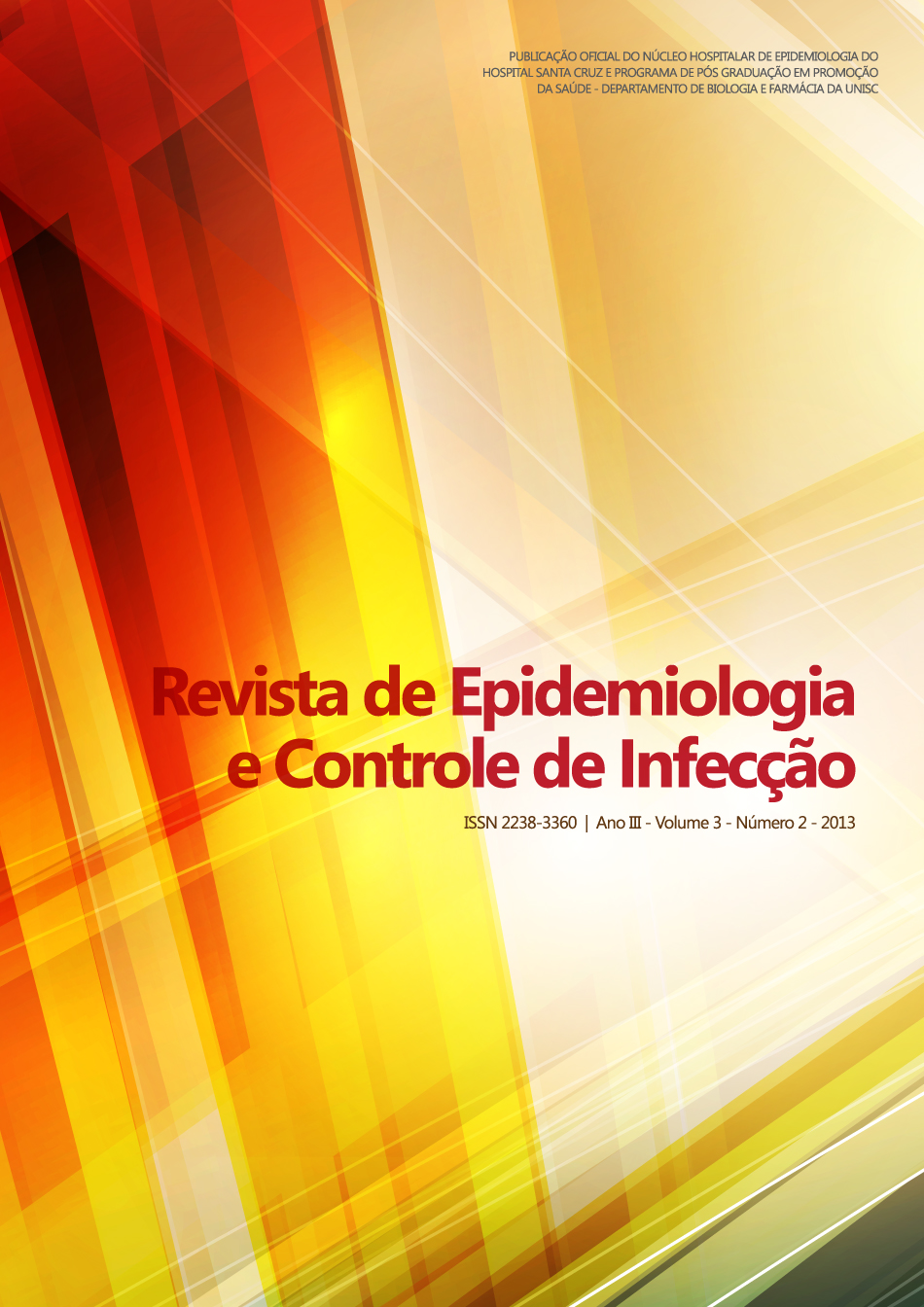Medical hospital materials processing: a literature review on sterilization effectiveness
DOI:
https://doi.org/10.17058/reci.v3i2.2959Abstract
Backgound and Objectives: Surgical instruments are widely reprocessed, mainly in developing countries, where the cost of using these materials is high. Scientifi c literature indicates the absence of validated cleaning and sterilization processes. The study aimed at evaluating, through a literature review, the evidence to support or not the practice of reprocessing and reuse of originally single-use, medical-hospital materials. Methods: A total of 27 articles in English and Portuguese were selected from journals indexed in the LILACS, Pubmed and Medline databases, as well as studies published in ScienceDirect website using the following key words: sterilization, single-use articles, hospital infection and surgical instruments. Articles that did not fi t the study subject were excluded. Results: There was a great variety of studied instruments and reprocessing methods. Most articles emphasize the sterilization ineffectiveness, identifying microorganisms at the end of the process. Conclusion: Based on the current knowledge, it is important to consider each case validating surgical materials reprocessing and reuse protocols based on scientific knowledge. Based on the analysis of the study articles, we concluded that this practice cannot be performed indiscriminately. KEYWORDS: Sterilization. Cross infection. Surgical Equipment. Public Health.Downloads
Downloads
Published
How to Cite
Issue
Section
License
The author must state that the paper is original (has not been published previously), not infringing any copyright or other ownership right involving third parties. Once the paper is submitted, the Journal reserves the right to make normative changes, such as spelling and grammar, in order to maintain the language standard, but respecting the author’s style. The published papers become ownership of RECI, considering that all the opinions expressed by the authors are their responsibility. Because we are an open access journal, we allow free use of articles in educational and scientific applications provided the source is cited under the Creative Commons CC-BY license.


